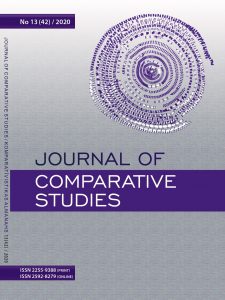Groups of Festivities Most Exposed to Commercialization Processes: Opinions of Residents in Latgale and Pskov Region
Groups of Festivities Most Exposed to Commercialization Processes: Opinions of Residents in Latgale and Pskov Region
Author(s): Oksana KovzeleSubject(s): History, Anthropology, Social Sciences, Sociology, Oral history
Published by: Daugavpils Universitātes Akadēmiskais apgāds “Saule”
Keywords: festive culture; commercialization; Latgale; Pskov region; survey;
Summary/Abstract: The paper is based on the survey (questionnaire and interviewing) of residents in Latgale (south-eastern region of Latvia – the major object of the research) and residents in Pskov region (part of the north-western federal province of Russia – the minor object of the research). The survey was conducted between January 2018 and June 2019 with the aim of detecting the views of the local population on contemporary festive culture and ongoing changes in this sphere. The survey, which included 906 people, revealed that nowadays almost all groups of festivities are exposed to commercialization processes. Adopted, state, calendar (traditional), and religious festivities are affected the most (in Latgale these festivities are Christmas, Easter, Ligo/Jāņi, and St. Valentine’s Day; in the Pskov region, they are Easter and Christmas). Family festivities (birthdays, weddings, and jubilees) are less affected. However, the materials show that these indicators are increasing with time. At the same time, the intensity of commercialization processes differs significantly in both statistical regions, namely, in Latgale it is significantly higher. Residents of Latgale either become accustomed to the status of consumers of festive products over time, or criticize the changes that have occurred in the festive culture under the influence of commercialization processes. As a result, they are increasingly thinking about the need to preserve cultural and moral values in a modern consumer society. In turn, the residents of the Pskov region who participated in the survey over time observe the problem identified in the research, although in most cases they still refrain from commenting on this topic.
Journal: Komparatīvistikas almanahs
- Issue Year: 2020
- Issue No: 13(42)
- Page Range: 64-87
- Page Count: 24
- Language: English

